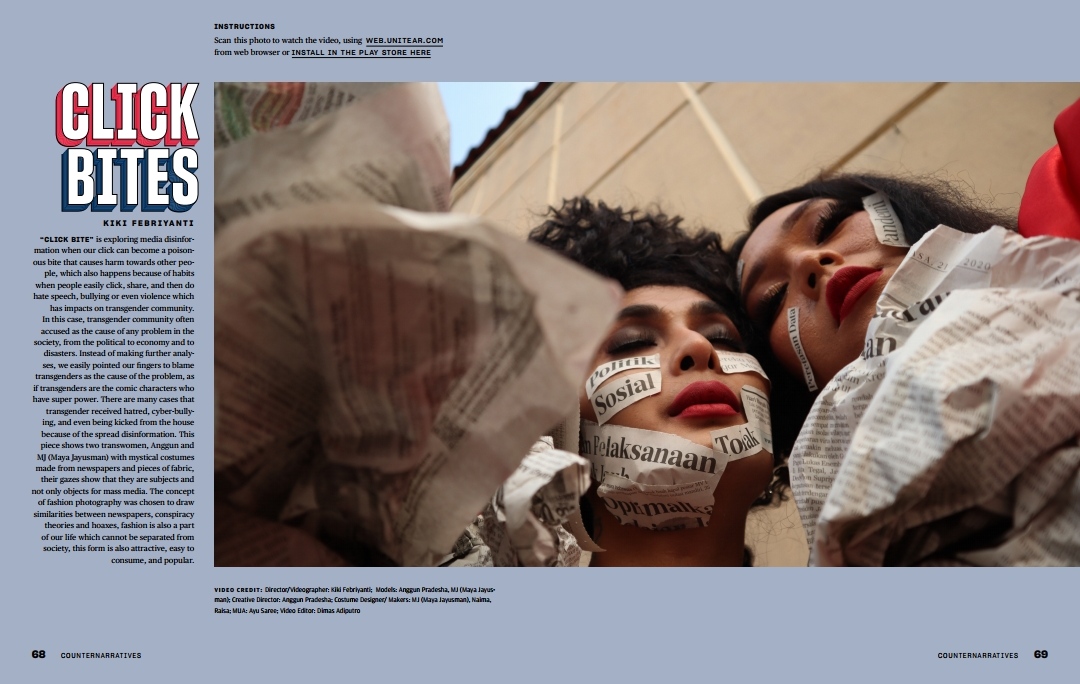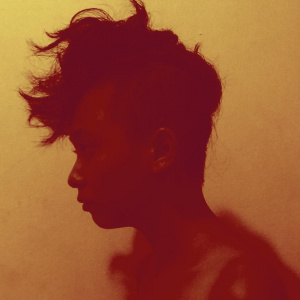Kiki Febriyanti works on disinformation project at Artists for Digital Rights Network
IAWRT member, filmmaker and artist from Indonesia explores the instant consumption habits of people on the internet that cause cyber-bullying.
The Artists for Digital Rights Network (A4DRN), led by UP INTERNET President Mac Andre Arboleda, held it inaugural Artists for Digital Rights Program in July. Ten selected artists from Philippines and Indonesia worked on projects related to disinformation.
The project is made possible by Doublethink Lab and Innovation for Change-East Asia. The group launched an artistic publication on July 28 and held a roundtable discussion on July 31.
Artists underwent a month-long online workshop in the fellowship.
“The program just like I expected that every artist always supports each other, learn together and from each other, especially because everyone has different backgrounds and specialty in their art practice and our works as counter-narrative media and disinformation,” shared Febriyanti.
Febriyanti shared the project she worked on as part of the A4DRN program. “Click Bite” explores the instant consumption habits of people on the internet that cause cyber-bullying.
“Click Bite” is when our click can become a poisonous bite that causes harm towards other people, which also happens because of habits when people easily click, share, and then do hate speech, bullying or even violence which has impacts on the transgender community.
“In this case, the transgender community is often accused as the cause of any problem in the society, from the political to the economy and to disasters. Instead of making further analyses, we easily pointed our fingers to blame transgenders as the cause of the problem, as if transgenders are the comic characters who have superpowers. There are many cases that transgender received hatred, cyber-bullying, and even being kicked from the house because of the spread of disinformation,” explained the artist.
This piece shows two transwomen, Anggun and MJ (Maya Jayusman) with mystical costumes made from newspapers and pieces of fabric, their gazes show that they are subjects and not only objects for mass media.
“The concept of fashion photography was chosen to draw similarities between newspapers, conspiracy theories and hoaxes, fashion is also a part of our life which cannot be separated from society, this form is also attractive, easy to consume, and popular,” shared Febriyanti.

Scan photo to watch the video, using https://web.unitear.com/ from a web browser or Install https://play.google.com/store/apps/details?id=com.ibosoninnov.unitear
Febriyanti holds a Bachelor’s degree majoring in Indonesian Literature. She also completed a John Darling Fellowship 2015 on “Visual anthropology” at the Australian National University in Canberra, Australia. She had also held an artist residency at the International Center of Graphic Arts MGLC in Ljubljana, Slovenia in 2019. Recently, her video work took part in the Every Woman Biennial London 2021 exhibition.
She is currently working as a freelance filmmaker and also a member of Authority Collective. She also wants to educate on the “photo bill of rights,” where Authority Collective is one of the eight author organizations. The website about the “photo bill of rights” contains information and education that people can read about how lens-based/media workers can have an ethical and healthy working environment.








